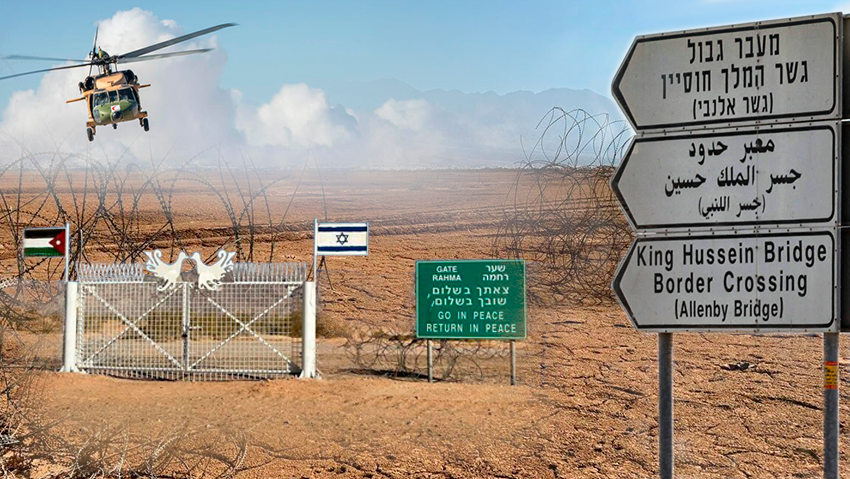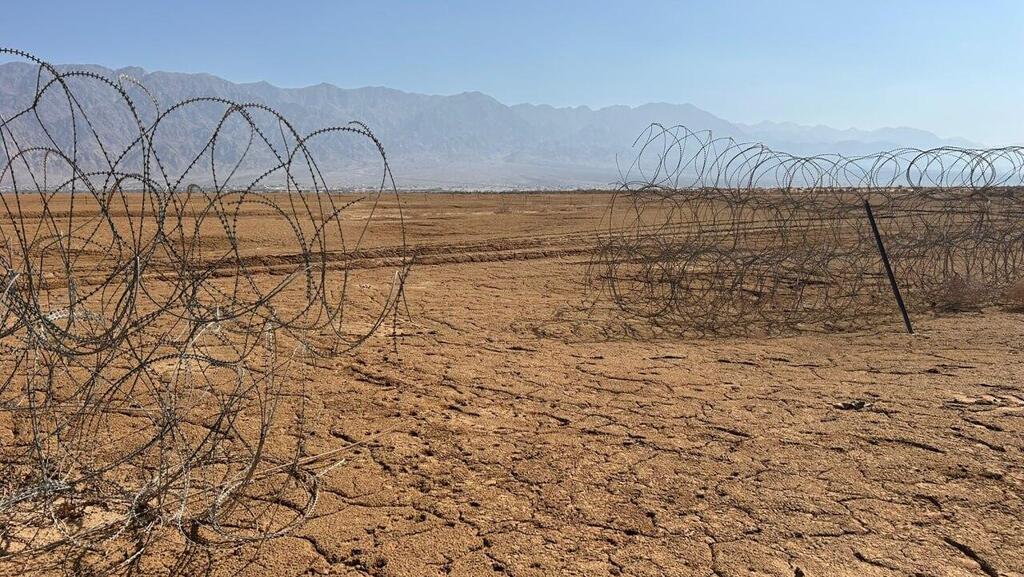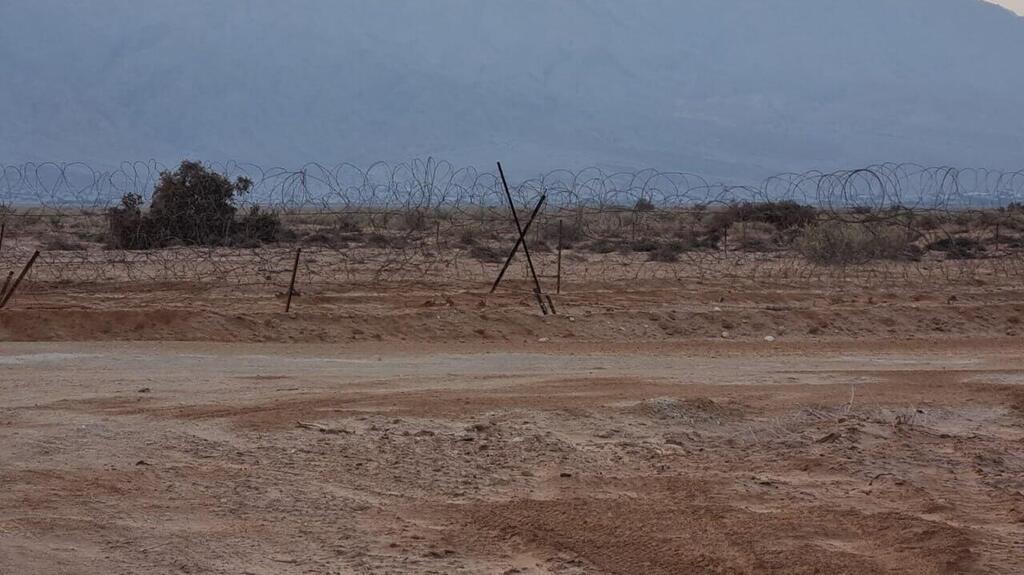Getting your Trinity Audio player ready...
Warnings from residents along Israel’s eastern border about potential terrorist activity are becoming a grim reality. The first attack occurred in late October when terrorists infiltrated Neot HaKikar in the Tamar Regional Council, injuring two IDF soldiers before being neutralized by the 998th Battalion.
A month later, a Jordanian vehicle breached the border fence near Kibbutz Samar in the Eilot region. These incidents are part of a broader trend of cross-border weapons smuggling. Despite government promises to fortify the border with a stronger barrier, funding for these initiatives has been delayed. Meanwhile, residents face mounting threats, fearing even worse to come.
Recently, former National Security Advisor Giora Eiland issued a stark warning in an assessment prepared for the Zalul environmental organization. He cautioned about increased terrorist activity emanating from Jordan, highlighting Iran's interest in establishing a military infrastructure there to target Israel. Eiland emphasized two primary threats: short-range drone attacks and mortar fire, noting that while Israel is effective at countering large drones, smaller ones pose a significant challenge.
Farmers under pressure
Farmers in the Arava have already documented drones hovering above their fields. Uri Meshli, a resident of Yotvata and head of its agricultural operations, described the vulnerability of the region. "Our fields stretch 6 kilometers along the border, with only a makeshift barrier. It’s easy for anyone to cross if they want to," he said.
Meshli noted that there is little military presence in the area, forcing local communities to fund their emergency response teams and equipment. "We’ve seen five drones flying over our fields at an altitude of 30 meters. We’re the buffer between the border and the Nof Adom school. The Jordanian forces seem serious—they’ve upgraded their patrols and vehicles. But we’re not sleeping well at night," he added.
A UAV in the skies of the Eilot Regional Council
Ronen Shoshani, a farmer and emergency response leader in Neot HaKikar, said the tension has altered his work habits. "My farm is right on the border. I don’t go there at 5 a.m. anymore because I’m worried. I’m more alert and avoid being in the fields after dark," he said.
Elad Tavlan, a resident of Hatzeva in central Arava, pointed out that residents have had to take security into their own hands. "There are hardly any soldiers here for routine security. Local residents could help fill the gap, whether through reserve duty or expanded emergency teams," he suggested.
He also noted increased Jordanian efforts to secure the border. "We see small outposts turning into full military positions. Right across from my kitchen window is a new two-story Jordanian outpost built this past year. It’s comforting to see their presence since no one else is protecting us," he said.
Security plans delayed
In October, Ynet revealed the IDF’s plan to close the border with Jordan, a project championed by Deputy Chief of Staff Maj. Gen. Amir Baram. The plan included deploying advanced surveillance systems, and rapid-response units, and upgrading the physical barrier. However, it has been postponed indefinitely, despite Prime Minister Benjamin Netanyahu’s pledge to allocate funds in the 2025 budget.
During a September visit to the border, Netanyahu acknowledged the challenges. "This is a border of peace, and we work with Jordan to keep it that way. But the threats are growing. Smugglers are trying to bring in weapons and terrorists. We will strengthen the barrier to stop this," he said.
Despite calls from local leaders, including Eilot Regional Council head Hanan Ginat, for immediate action, the government has yet to allocate the necessary resources. "We must enhance both security and residents’ sense of safety," Ginat said.
In response to the growing threats, council leaders have formed a forum, led by Jordan Valley Regional Council head David Elhayani, to advocate for improved security measures.
IDF responds to concerns
In a statement, the IDF addressed the issues raised: "The IDF adapts its defense plans according to evolving threats. Since the start of the war, the border has been reinforced with overt and covert surveillance systems that detect suspicious movements along its entire length.
"IDF forces are deployed along the border for defense and observation missions, based on existing force levels, and are prepared for any scenario."
Get the Ynetnews app on your smartphone: Google Play: https://bit.ly/4eJ37pE | Apple App Store: https://bit.ly/3ZL7iNv
"In recent months, construction of a fortified fence has begun near Arava communities. The IDF maintains regular communication with local security officials and counterpart organizations."
Residents remain vigilant
For now, residents along the eastern border rely on their own resources and Jordanian patrols to maintain safety. However, the fragile peace remains under constant threat from both criminal smuggling and potential terrorist attacks. With delayed government action, the call for stronger border security grows louder, even as the region remains on edge.








